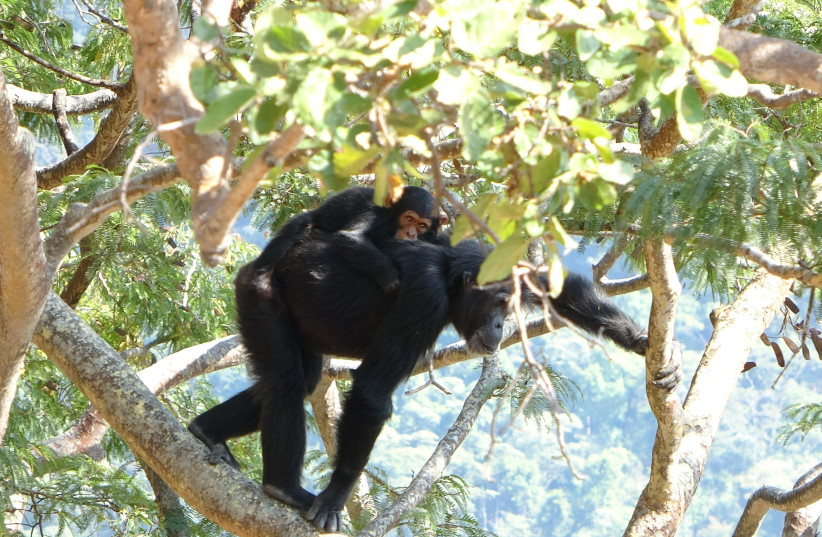Humans and chimpanzees share 99% of their genes. When DNA insertions and deletions are taken into account, the two primates still share 96% sequence identity. Psychologists and anthropologists who have studied adolescent chimps say they share some of the same risk-taking behaviors as human teens but that they may be less impulsive than their human counterparts.
Prof. Alexandra Rosati, an expert in these fields at the University of Michigan, was the lead researcher in a new study published by the American Psychological Association’s Journal of Experimental Psychology: General, titled “Distinct Developmental Trajectories for Risky and Impulsive Decision-making in Chimpanzees.”
The study tackles the age-old question of why adolescents take more risks – is it because of the environment or because of biological predispositions?
Environment or biological predispositions
The onset of risk-taking behavior in this period accompanies profound changes in brain circuitry and cognitive capacities that support decision-making, cognitive control and emotion regulation, the researchers wrote. “Adolescent chimpanzees are in some sense facing the same psychological tempest that human teens are,” said Rosati. “Our findings show that several key features of human adolescent psychology are also seen in our closest primate relatives.”
The team conducted two tests involving food rewards with 40 wild-born chimpanzees at a sanctuary in the Republic of Congo. The primates voluntarily participated in the games to be rewarded with food treats.

Chimpanzees, which can live to be 50 years, become teens at about eight to 15 years of age. Like humans, they show rapid changes in hormone levels during adolescence, start forming new bonds with peers, show increases in aggression and compete for social status.
Young chimps take riskier decisions than their parents
In the first test, adolescent and adult chimpanzees could choose between two containers in a gambling task. One container always contained peanuts, a food that chimpanzees like somewhat. The other container concealed either an unliked food like a cucumber slice or a favorite food such as a slice of a banana. The chimpanzees could play it safe and get the peanuts or take a chance for some coveted banana at the risk of ending up with an unappetizing cucumber.
The chimpanzees’ emotional reactions and vocalizations were recorded, including moans, whimpers, screams, banging on the table or scratching themselves. Saliva samples were also collected to track levels of cortisone and testosterone hormone levels
During several rounds of the test, adolescent chimpanzees took the risky option more often than adult chimpanzees, but adolescents and adults had similar negative reactions when they received the cucumber.
The second test, modeled after the famous “marshmallow test” with human children, examined delayed gratification where chimpanzees could receive one banana slice immediately or wait for one minute to receive three slices
Both adolescent and adult chimpanzees chose the greater delayed reward at a similar rate. Human teens tend to be more impulsive than adults so they would be more likely to take the immediate reward.
“Prior research indicates that chimpanzees are quite patient compared with other animals, and our study shows that their ability to delay gratification is already mature at a fairly young age, unlike in humans,” Rosati said. But adolescent chimpanzees weren’t happy about waiting for the extra banana slices, and they threw more tantrums during the one-minute delay than adult chimpanzees.
Risk-taking behavior in both adolescent chimpanzees and humans appears to be deeply biologically ingrained, Rosati concluded, but increases in impulsive behavior may be specific to human teens..
